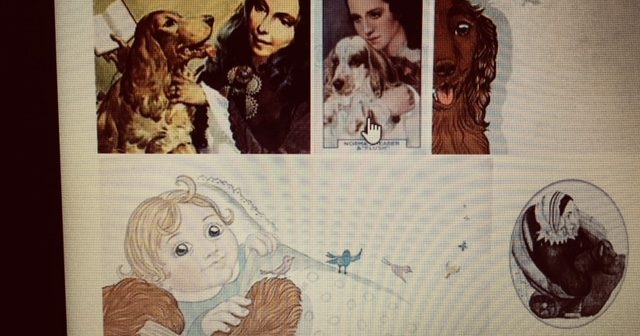This week I am paying homage to Elizabeth Barrett Browning which is just an excuse to read some fine poems while my Norfolk Terrier takes a nap. This June morn I am perusing The Oxford Anthology of English Poetry, The New Oxford Book of English Verse and I even have a copy of Sonnets from The Portuguese which Granville used to read to me when we were courting. (Author’s Note: This went up in smoke once our daughter arrived.)
Mrs. Browning grew up at Hope End, a manor overlooking the Malvern Hills in idyllic Herefordshire. By 14 she had published her first poem. Tragedy struck in the coming years: a riding accident left her an invalid, her mother and two brothers died, her father lost his Jamaica sugar plantation fortune during the slave rebellion and had to retrench. Hope had ended and the ailing Miss Barrett stayed in her room.
But frail health did not mean frail mind. She wrote and read voluminously (Latin, Greek, Hebrew and eventually French and Italian) and by the early 1840s, she was a well-known poet.
By then, Victorian poet Robert Browning had heard of her and read two of her books, realizing she had paid tribute to him in one of the volumes. This led to a letter, an introduction, weekly get-togethers and friendship turned to love, all recorded in their daily correspondence which still survives. The Portuguese Sonnets (“How do I love thee? Let me count the ways.”) were written during their courtship though Barrett didn’t present them to her husband until three years after their marriage, worried about their worth and his reaction. What this shy and ailing soul didn’t realize was she had written what is now considered some of the greatest love verse ever written by a woman.
Romance bloomed despite Barrett’s father’s disapproval. Elizabeth Barrett and Robert Browning eloped in 1846 and moved to Italy with her Cocker Spaniel Flush in tow. The dog had had the same reaction to Mr. Browning as Barrett’s father – worse in fact because Browning was bitten at least twice but all those long walks led to those two eventually making peace. Virginia Woolf later immortalized Flush in her biography Flush in 1933.
My high school English teacher, Miss Boyle, would be disappointed that I am not going to write a few paragraphs about the genius and flow of these richly brocaded poems. I suppose I could though alas! I found an article on the Web from Middleburg Life by Richard Hooper which talked about Flush being kidnapped three times with the ransom being paid in full by Mrs. Browning. The gossipy side of me found this a little more interesting than iambic pentameter.
Dolly has lots of beds and toys and gets away with all sorts of things because it’s hard to discipline a little dog with a face like an elf, however, she is not as spoiled as Flush was. The poetess fed her dog custards, cakes, scraps and buttered bread. She also tried to teach him the alphabet so he could read and play board games with her.
I’m not sure I want to play games with Dolly. This would be a little embarrassing if she won. I already have to resort to desperate tactics to beat Granville at Scrabble: I serve a heavy meal and give him a large glass of wine beforehand.
Herewith, a few stanzas from Browning’s poem about her Cocker Spaniel.
“To Flush, My Dog”
Loving Friend, the gift of one,
Who, her own true faith, hath run,
Through thy lower nature;
Be my benediction said
With my hand upon thy head
Gentle fellow-creature!
Life a lady’s ringlets brown,
Flow thy silken ears adown
Either side demurely,
Of thy silver-suited breast
Shining out from all the rest
Of thy body purely.
The entire poem can be found at https://www.poetryfoundation.org/poems/43726/to9999-flush-my-dog.


